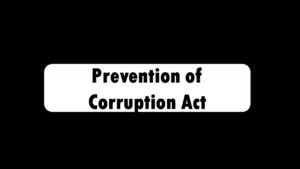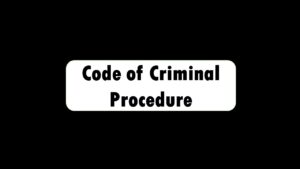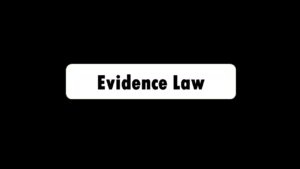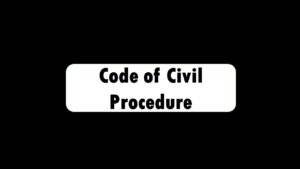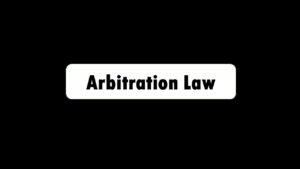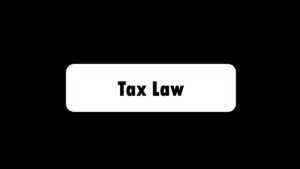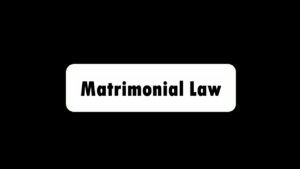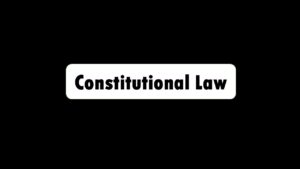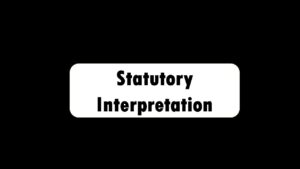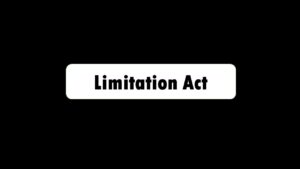MK Harshan vs. State of Kerala [(1996) 11 SCC 720] No tacit approval shown in putting of bribe money in drawer 8. In the light of these conflicting versions and suspicious features on this crucial...
Read MoreLAW IN
ONE
PARAGRAPH

Old is new unless you know and remember the old.
– Litigating Hand
Essentials to prove in illegal gratification cases
State of Maharashtra vs. Dnyaneshwar Laxman Rao Wankhede [(2009) 15 SCC 200] Essentials to prove in illegal gratification cases 16. Indisputably, the demand of illegal gratification is a sine qua non for constitution of an...
Read MorePresumption to be drawn u/s 20 in corruption cases is not an inviolable one
CM Girish Babu vs. CBI, Cochin, High Court of Kerala [(2009) 3 SCC 779] Presumption to be drawn u/s 20 in corruption cases is not an inviolable one 21. It is well settled that the...
Read MoreMere recovery of money by itself cannot prove the charge of bribe
Suraj Mal vs State (Delhi Administration) [1979 (4) SCC 725] Mere recovery of money by itself cannot prove the charge of bribe 2. In our opinion, mere recovery of money divorced from the circumstances under...
Read MoreFIR can be quashed despite filing of charge-sheet by the investigating officer
Shaileshbhai vs. St. of Gujarat [Criminal Appeal No. 1884/2013] FIR can be quashed despite filing of charge-sheet by the investigating officer 7. The question of law involved in these two appeals as to whether quashing...
Read MoreDifference between negligence under civil law and criminal law
Jacob Mathew vs. State of Punjab and Another [(2005) 6 SCC 1] Difference between negligence under civil law and criminal law 12. The term “negligence” is used for the purpose of fastening the defendant with...
Read MoreDoctor not expected to remain on the bedside of the patient throughout his stay in the hospital
Bombay Hospital and Medical Research Centre vs. Asha Jaiswal and Others [(2021) 19 SCC 1] Doctor is not expected to remain on the bedside of the patient throughout his stay in the hospital 26. It...
Read MoreMere expression of words without any intent to cause alarm is not sufficient to constitute offence of criminal intimidation
Sharif Ahmed and Another vs. State of Uttar Pradesh and Another [2024 SCC OnLine SC 726] Mere expression of words without any intent to cause alarm is not sufficient to constitute offence of criminal intimidation...
Read MoreElements of criminal breach of trust and cheating under the Indian Penal Code
Arvindbhai Maganlal Master vs. State of Gujarat [2014 SCC OnLine Guj 13301] Elements of criminal breach of trust and cheating under the Indian Penal Code The offences of criminal breach of trust (Section 406 IPC)...
Read MoreNo requirement of individual notices to Directors of company in cheque dishonour cases
Kirshna Texport and Capital Markets Limited vs. Ila A. Aggarwal & Ors. (2015) 8 SCC 28 No requirement of individual notices to Directors of company in cheque dishonour cases 16. Section 141 states that if...
Read MoreWhat is conscious possession in NDPS cases?
Dharampal Singh vs. State of Punjab (2010) 9 SCC 608 What is conscious possession in NDPS cases? 13. It needs no emphasis that the expression “possession” is not capable of precise and completely logical definition...
Read MoreNecessity is the operative test while adjudicating bail applications
Sanjay Chandra v. CBI [(2012) 1 SCC 40] Necessity is the operative test while adjudicating bail applications 21. In bail applications, generally, it has been laid down from the earliest times that the object of...
Read MoreFactors to be considered while dealing with anticipatory bail
Siddharam Satlingappa Mhetre v. State of Maharashtra [(2011) 1 SCC 694 Factors to be considered while dealing with anticipatory bail 112. The following factors and parameters can be taken into consideration while dealing with the...
Read MoreArrest should be avoided where the accused has joined and would continue joining investigation
Siddharam Satlingappa Mhetre v. State of Maharashtra [(2011) 1 SCC 694] Arrest should be avoided where the accused has joined and would continue joining investigation 89. It is imperative for the courts to carefully and...
Read MorePrinciples governing sanction U/S 19 of the Prevention of Corruption Act
C.B.I. vs. Ashok Kumar Aggarwal [(2014) 14 SCC 295] Principles governing sanction under section 19 of the Prevention of Corruption Act 8. In view of the above, the legal propositions can be summarised as...
Read MoreProsecution needs to establish the nexus between the recovered object and the subject crime
Prosecution needs to establish the nexus between the recovered object and the subject crime Pulukuri Kotayya and Others vs. King-Emperor [1946 SCC OnLine PC 47] …..Normally the section is brought into operation when a person...
Read MoreConditions necessary for the application of section 27 of the Evidence Act
Anter Singh vs State of Rajasthan [(2004) 10 SCC 657] Conditions necessary for the application of section 27 of the Evidence Act 16. The various requirements of the section can be summed up as follows:...
Read MoreEvidentiary value of unregistered document required by law to be registered
S. Kaladevi vs. V.R. Somasundaram & Others [AIR 2010 SC 1654] Evidentiary value of unregistered document required by law to be registered 13. …… K.B. Saha and Sons Private Limited v. Development Consultant Limited, (2008) 8...
Read MorePrinciples governing the ouster of jurisdiction of the Civil Court
Dhulabhai and Others vs The State of Madhya Pradesh [AIR 1969 SC 68] Principles governing the ouster of jurisdiction of the Civil Court (1) Where the statute gives a finality to the orders of the...
Read MoreCan a cheque dishonour case be compounded after conviction?
Damodar S. Prabhu vs. Sayed Babalal H. [(2010) 5 SCC 663] Can a cheque dishonour case be compounded after conviction? 11. The compounding of the offence at later stages of litigation in cheque bouncing cases has also...
Read MoreRegistration of a document gives notice of execution to the world
Suraj Lamp and Industries Private Limited vs. State of Haryana & Anr. [(2009) 7 SCC 363] Registration of a document gives notice of execution to the world 18. Registration of a document gives notice to...
Read MoreProduction of a copy or a certified copy does not raise the presumption under Section 90
Lakhi Baruah v. Padma Kanta Kalita [(1996) 8 SCC 357] Production of a copy or a certified copy does not raise the presumption under Section 90 16. So far as applicability of presumption arising from...
Read MoreVRS is formulated for the benefit of the employees and the same is in the nature of welfare legislation
All Assam STATFED Karmachari Aikya Manch and Ors. Vs. State of Assam and Ors [(2014) 5 GLR 69] VRS is formulated for the benefit of the employees and the same is in the nature of...
Read MoreIf erroneous promotion is given by wrongly interpreting the rules, the employer cannot be prevented from applying the rules rightly
Union of India & Anr. v. Narendra Singh [(2008) 2 SCC 750] If erroneous promotion is given by wrongly interpreting the rules, the employer cannot be prevented from applying the rules rightly 32. It is...
Read MoreGrant of final relief as interim relief
The State of Orissa v. Madan Gopal Rungta [AIR 1952 SC 12] Grant of final relief as interim relief In The State of Orissa v. Madan Gopal Rungta [AIR 1952 SC 12], a Constitution Bench...
Read MoreUnder what circumstances can the Court interfere in cases of administrative law-making – Wednesbury principle
Ramesh Chandra Sharma & Ors. vs. State of Uttar Pradesh & Ors. [Civil Appeal No. 8819 of 2022] Under what circumstances can the Court interfere in cases of administrative law-making – Wednesbury principle 42. In...
Read MoreA court retains control over a suit for specific performance even after passing a decree
Kishor Ghanshyamsa Paralikar (D) through Lrs. vs. Balaji Mandir Sansthan Mangrul (Nath) & Another [Civil Appeal No. 3794/2022] A court retains control over a suit for specific performance even after passing a decree 11. This...
Read MoreAllegation of fraud must be precise and specific
Electrosteel Castings Ltd v. UV Asset Reconstruction Company Ltd Ors, [(2022) 2 SCC 573] Allegation of fraud must be precise and specific 7.2. However, it is required to be noted that except the words used...
Read MoreWhether unstamped foreign award could validly be enforced under Sections 48 and 49 of Act?
Shriram EPC Limited vs. Rioglass Solar SA [AIR 2018 SC 4539] Whether unstamped foreign award could validly be enforced under Sections 48 and 49 of Act? 23. There is no doubt whatsoever that if stamp...
Read MoreNon-framing is an issue not fatal when parties went to trial knowing the rival case and leading all the evidence
Nedunuri Kameswaramma v. Sampati Subba Rao [AIR 1963 SC 884] Non-framing is an issue not fatal when parties went to trial knowing the rival case and leading all the evidence 5. …No doubt, no issue...
Read MoreRule of estoppel under section 115 of the Indian Evidence Act
Chhaganlal v. Narandas [(1982) 2 SCR 166] Rule of estoppel under section 115 of the Indian Evidence Act Estoppel deals with questions of facts and not of right. A man is not estopped from asserting...
Read MoreAdverse possession requires all the three classic requirements to co-exist at the same time
Ravinder Kaur Grewal v. Manjit Kaur [(2019) 8 SCC 729] Adverse possession requires all the three classic requirements to co-exist at the same time 60. The adverse possession requires all the three classic requirements to...
Read MoreAdverse possession contemplates a hostile possession
T. Anjanappa v. Somalingappa [(2006) 7 SCC 570] Adverse possession contemplates a hostile possession i.e. a possession which is expressly or impliedly in denial of the title of the true owner 12. The concept of...
Read MoreWhether the opportunity of filing written statement in the subject suit could be extended further relaxation in view of the orders passed and issued in the wake of COVID-19 pandemic?
Prakash Corporates vs. Dee Vee Projects Limited [(2022) 5 SCC 112] Whether the opportunity of filing written statement in the subject suit could be extended further relaxation in view of the orders passed and issued...
Read MoreIn taxation regime, there is no room for presumption and nothing can be taken to be implied
South Indian Bank Ltd. vs. Commissioner of Income Tax [Civil Appeal No. 9606 of 2011] In taxation regime, there is no room for presumption and nothing can be taken to be implied 29. In the...
Read MoreEqual pay for equal work could only be invoked when the employees were similarly circumstanced in every way
State of Madhya Pradesh Through Principal Secretary & Ors. vs. Seema Sharma [Civil Appeal No. 3892 of 2022] Equal pay for equal work could only be invoked when the employees were similarly circumstanced in every...
Read MorePrinciples for discharge under section 227 of the CrPC
M.E. Shivalingamurthy v. Central Bureau of Investigation, Bengaluru [(2020) 2 SCC 768] Principles for discharge under section 227 of the CrPC 17.1. If two views are possible and one of them gives rise to suspicion...
Read MoreEven erroneous decisions can operate as res-judicata
R. Unnikrishnan & Anr vs V.K. Mahanudevan & Ors [ 2014 (4) SCC 434] Even erroneous decisions can operate as res-judicata 15. It is trite that law favours finality to binding judicial decisions pronounced by...
Read MoreArrest should be the last option and it should be restricted to those exceptional cases
Siddharam Satlingappa Mhetre VS. State of Maharashtra [(2011) 1 SCC 694] Arrest should be the last option and it should be restricted to those exceptional cases 90. A great ignominy, humiliation and disgrace is attached...
Read MoreBail is not to be withheld as a punishment
Shri Gurbaksh Singh Sibbia vs. State of Punjab [(1980) 2 SCC 565] Bail is not to be withheld as a punishment 27. It is not necessary to refer to decisions which deal with the right...
Read MoreComplainant cannot allow a case to remain pending for an indefinite period
S. Rama Krishna vs S. Rami Reddy (D) By His Lrs. [2008 (5) SCC 535] Complainant cannot allow a case to remain pending for an indefinite period The conduct of the complainant for the said...
Read MoreWho is a necessary party?
Kasturi vs. Uyyamperumal and Ors. [(2005) 6 SCC 733] Who is a necessary party? It is now clear that two tests are to be satisfied for determining the question 3 who is a necessary party....
Read MoreRetrospective seniority should not be granted from a day when an employee is not even borne in the cadre
K. Meghachandra Singh & Ors. vs. Ningam Siro & Ors. [Civil Appeal No. 8833-8835 of 2019] Retrospective seniority should not be granted from a day when an employee is not even borne in the cadre...
Read MorePlaint cannot be rejected on the basis of the allegations made by the defendant in his written statement or in application for rejection of the plaint
Mayar (H.K.) Ltd. and Ors. vs. Owners and Parties, Vessel M.V. Fortune Express and Ors. [AIR 2006 SC 1828] Plaint cannot be rejected on the basis of the allegations made by the defendant in his...
Read MorePersonal requirement for ejectment of a tenant must continue to exist on the date when the proceeding is finally disposed
Variety Emporium vs. V.R.M. Mohd. Ibrahim Naina [(1985) 1 SCC 251] Personal requirement for ejectment of a tenant must continue to exist on the date when the proceeding is finally disposed 16. No authority is...
Read MoreWhat is the substantial question of law?
Santosh Hazari vs. Purushottam Tiwari [(2001) 3SCC 179] What is the substantial question of law? 14. A point of law which admits of no two opinions may be a proposition of law but cannot be...
Read MoreConcurrent finding of the fact is binding subject to certain exceptions
C. Doddanarayana Reddy (Dead) By Lrs. & Ors. vs. C. Jayarama Reddy (Dead) By Lrs. & Ors., [Civil Appeal No. 2165 of 2009] Concurrent finding of the fact is binding subject to certain exceptions 28....
Read MoreWhere the case of the prosecution has been proved beyond all reasonable doubts, the motive loses its importance
Tarsem Kumar vs. Delhi Administration [(1994) Supp 3 SCC 367] Where the case of the prosecution has been proved beyond all reasonable doubts on basis of the materials produced before the court, the motive loses...
Read MoreCustody orders are temporary in nature and the principle of estoppel does not apply
Rosy Jacob vs. Jacob A.J. Chakramakkal [1973 (1) SCC 840] Custody orders are temporary in nature and the principle of estoppel does not apply “18. The appellant’s argument based on estoppel and on the orders...
Read MoreJurisdiction is not attracted by the creation of fortuitous circumstances in child custody matters
Surinder Kaur Sandhu vs. Harbax Singh Sandhu and Anr. [(1984) 3 SCC 698] Jurisdiction is not attracted by the operation or creation of fortuitous circumstances The boy is a British citizen, having been born in...
Read MoreAdmission vis-à-vis confession
CBI v. V.C. Shukla [(1998) 3 SCC 410] Admission vis-à-vis confession 44. Lastly, comes the question whether the entries are “admissions” within the meaning of Section 17 of the Act so as to be admissible...
Read MoreLegal perils do not make a testimony compelled and violate Article 20(3)
Nandini Satpathy v. P.L. Dani, (1978) 2 SCC 424 Legal perils do not make a testimony compelled and violate Article 20(3) 57. We hold that Section 161 enables the police to examine the accused during...
Read MoreDirections of the Supreme Court providing copy of FIR to the accused and uploading it on the internet
Youth Bar Association vs. Union of India [(2016) 9 SCC 473] Directions of the Supreme Court providing copy of FIR to the accused and uploading it on the internet 12. Having heard learned counsel for...
Read MoreReplication and principles governing it
Anant Construction (P) Ltd. vs Ram Niwas [1994 (31) DRJ 205] Replication and principles governing it 14. Decided cases in India use the term rejoinder loosely for a reply or replication filed by the plaintiff...
Read MoreEvery judicial proceeding is a legal proceeding but not vice-versa
General Officer Commanding vs CBI & Anr, (2012) 6 SCC 228 Every judicial proceeding is a legal proceeding but not vice-versa 12. The ‘prosecution’ means a criminal action before the court of law for the purpose of determining ‘guilt’ or...
Read MoreConduct of the parties is a relevant factor in the matter of construction of a contract
Mc Dermott International Inc. v. Burn Standard Co. Ltd. [(2006) 11 SCC 181] Conduct of the parties is a relevant factor in the matter of construction of a contract 112. It is trite that the...
Read MorePrincipal differences between co-ownership and partnership
Inti Narayana vs. Gurram Malakondaiah [MANU/AP/0219/1983] Principal differences between co-ownership and partnership 16. …….1. Co-ownership is not necessarily the result of agreement, partnership is. 2. Co-ownership does not necessarily involve community of profit or of...
Read MoreDifferent between retirement of partner and dissolution of partnership
Suresh Kumar vs. Amrit Kumar [AIR 1982 Del 131] Different between retirement of partner and dissolution of partnership 15. It is well settled that retirement is not the same thing as dissolution. On retirement of...
Read MoreOnce the fact of last seen is established the Accused must offer some explanation his departure
Surajdeo Mahto and Anr. vs. The State of Bihar [Criminal Appeal No. 1677 of 2011] Once the fact of last seen is established the Accused must offer some explanation his departure 29. The case of...
Read MoreEssential Points to plead for a person claiming possession of a property
Maria Margarida Sequeira Fernandes v. Erasmo Jack de Sequeira [(2012) 5 SCC 370] Essential points to plead for a person claiming possession of the property 70. It would be imperative that one who claims possession...
Read MoreCaretaker, watchman or servant can never acquire interest in the property irrespective of his long possession
Maria Margarida Sequeira Fernandes v. Erasmo Jack de Sequeira [(2012) 5 SCC 370] Caretaker, watchman or servant can never acquire interest in the property irrespective of his long possession 97. Principles of law which emerge...
Read MoreEvidentiary value of an unregistered and unstamped document
Moduraboina Deepika vs. Kuna Sujatha Devi, Civil Revision Petition No. 388/ 2017 [Andhra Pradesh High Court] Evidentiary value of an unregistered and unstamped document 9. Section 17 (1) (b) of Registration Act mandates that a non-testamentary instrument which purport...
Read MoreTests for grant of temporary injunction
Dalpat Kumar and Anr. vs Prahlad Singh and Ors. [AIR 1993 SC 276] Tests for grant of temporary injunction 4. ………Injunction is a judicial process by which a party is required to do or to...
Read MoreFactors of consideration in grant of ex parte injunction
Morgan Stanley Mutual Fund vs Kartick Das [1994 SCC (4) 225] Factors of consideration in grant of ex parte injunction 36. As a principle, ex parte injunction could be granted only under exceptional circumstances. The...
Read MoreVishaka case guidelines for protection of women from sexual harassment in work places
Vishaka & others vs. the State of Rajasthan & others [(1997) 6 SCC 241)] Vishaka case guidelines for protection of women from sexual harassment in work places HAVING REGARD to the definition of ‘human rights’...
Read MoreEssential principles governing interpretation of documents/contracts
P. Madhusudhan Rao vs Lt. Col.Ravi Manan, and Another [Civil Revision Petition No. 4515 of 2014]: Andhra Pradesh High Court Essential principles governing interpretation of documents/contracts 25. The dictionary meaning of the word interpretation is...
Read MoreA claim for damages must be both pleaded and proved
Dileep Nevatia vs. State Bank of India, 2015 (5) MhLJ 105]: M.P. High Court A claim for damages must be both pleaded and proved 18. A claim for damages must be both pleaded and proved....
Read MoreNon-registration of copyright does not take away available civil or criminal remedies
K.C. Bokadia and Ors. vs. Dinesh Chandra Dubey [1999 (1) MPLJ 33]: Madhya Pradesh High Court Non-registration of copyright does not take away available civil or criminal remedies 8. A careful analysis of the Scheme...
Read MoreLaw on compensation for breach of contract under section 74
Kailash Nath Associates v. DDA [(2015) 4 SCC 136]: Supreme Court of India Law on compensation for breach of contract under section 74 1. Where a sum is names in a contract as a liquidated amount...
Read MorePrevious non-appearance of a party can be excused if a good cause for absence is shown in application under Order 9 Rule 7 of CPC
Lotus International vs Chaturbhujadas Karnani Textiles [ 65 (1997) DLT 300]: Delhi High Court Previous non-appearance of a party can be excused if a good cause for absence is shown in application under Order 9...
Read MoreConviction can be based on testimony of single witness
Vadivelu Thevar vs. The State of Madras [AIR 1957 SC 614]: Supreme Court of India Conviction can be based on testimony of single witness 10. ….. On a consideration of the relevant authorities and the provisions of the...
Read MoreFinding corroboration to a child’s testimony is rule of prudence and not of law
Mohamed Sugal Esa Mamasan Rer Alalah vs. The King [AIR 1946 PC 3]: Privy Council Finding corroboration to a child’s testimony is rule of prudence and not of law 9. It was also submitted on...
Read MoreBenefit of doubt to accused should not mature fanciful doubts
Sucha Singh and Anr vs. State of Punjab [AIR 2003 SC 976]: Supreme Court of India Benefit of doubt to accused should not mature fanciful doubts 20. Exaggerated devotion to the rule of benefit of...
Read MoreFive golden principles of case to be proved for placing a reliance on the circumstantial evidence
Sharad Birdhi Chand Sarda vs. State of Maharashtra [AIR 1984 SC 1622]: Supreme Court of India Five golden principles of case to be proved for placing a reliance on the circumstantial evidence 153. A close...
Read MorePrinciple of escheat under Section 29 of Hindu Succession Act
Kutchi Lal Rameshwar Ashram Trust Evam Anna Kshetra Trust vs. Collector, Haridwar [(2017) 16 SCC 418]: Supreme Court of India Principle of escheat under Section 29 of Hindu Succession Act 20. Section 29 [of the...
Read MoreLiability for damage due to dangerous thing on land of owner
Municipal Corpn. of Delhi vs. Sushila Devi [(1999) 4 SCC 317]: Supreme Court of India Liability for damage due to dangerous thing on land of owner 13. By a catena of decisions, the law is...
Read MoreRepudiation of the right to privy purse privileges and validity of 26th amendment
Raghunathrao Ganpatrao vs. Union of India [1994 Supp (1) SCC 191]: Supreme Court of India Repudiation of the right to privy purse privileges and validity of 26th amendment 96. Permanent retention of the privy purse...
Read MorePosition of Shebait in India in relation to property gifted to deity
Angurbala Mullick vs. Debvbrata Mullick [AIR 1951 SC 293]: Supreme Court of India Position of Shebait in India in relation to property gifted to deity 13. The exact legal position of a shebait may not...
Read MoreGift to idol / deity in Hindu system and position of a trustee
Vidya Varuthi Thirtha Swamigal vs. Balusami Ayyar and Ors [(1922) 24 BOMLR 629]: Bombay High Court Gift to idol / deity in Hindu system and position of a trustee 11. It is also to be...
Read MoreRelationship between section 433-A of CrPC and Article 72 and 161 of the Constitution dealing with short sentencing of prisoners
Maru Ram vs. Union of India and Others [(1981) 1 SCC 107]: Supreme Court of India Relationship between section 433-A of CrPC and Article 72 and 161 of the Constitution dealing with short sentencing of...
Read MoreRole of Lawyers and their professional ethics
R. Muthukrishnan vs. The Registrar General of the High Court of Judicature at Madras [Writ Petition (C) No.612 of 2016]: Supreme Court of India Role of Lawyers and their professional ethics 23. The role of...
Read MoreTests for determining existence of “personal bias”
Shri Kampher Mark Swer vs State of Meghalaya And Ors, [WP(C). No. 339 of 2014]: High Court of Meghalaya Tests for determining existence of personal bias 16. There is no straitjacket formula in a case...
Read MoreFormulation of substantial question of law is mandatory for High Court under section 100 of CPC
Kshitish Chandra Purkait vs. Santosh Kumar Purkait [(1997) 5 SCC 438]: Supreme Court of India Formulation of substantial question of law is mandatory for High Court under section 100 of CPC 10. We would only...
Read MoreConditions for recognition of compromise decree for effective mode of transfer
Bhoop Singh vs. Ram Singh Major & Ors. [(1995) 5 SCC 709]: Supreme Court of India Conditions for recognition of compromise decree for effective mode of transfer 18. The legal position qua clause (vi) can,...
Read MoreEssentials of a family settlement which give it a binding effect
J.P. Srivastava & Sons Pvt. Ltd. and Ors. vs. M/s. Gwalior Sugar Co. Ltd. and Ors. [AIR 2005 SC 83]: Supreme Court of India Object of prescribing a qualifying percentage of shares in petitioners and...
Read MoreObject of prescribing a qualifying percentage of shares in petitioners and their supporters to file petitions under Sections 397 and 398
J.P. Srivastava & Sons Pvt. Ltd. and Ors. vs. M/s. Gwalior Sugar Co. Ltd. and Ors. [AIR 2005 SC 83]: Supreme Court of India Object of prescribing a qualifying percentage of shares in petitioners and...
Read MoreRecognition of apostilled document despite India not having notified U.S.A as reciprocating country
In re: KK Roy (Private) Ltd. [AIR 1967 Cal 636]: Calcutta High Court Recognition of apostilled document despite India not having notified U.S.A as reciprocating country 32. The Notary is now internationally known today in...
Read MoreModes in which the conditions of service of an employee can be laid and principles governing their validity
Pratibha Singh and Ors. vs. State of Bihar and Ors. [MANU/BH/0324/1988]: Patna High Court Modes in which the conditions of service of an employee can be laid and principles governing their validity 29. It is...
Read MoreThe selecting authority cannot embark on the question as to whether a particular qualification is or is not higher than the prescribed qualification
Shaji, N. vs. District Officer and Ors. [MANU/KE/0380/1997]: Kerala High Court The selecting authority cannot embark on the question as to whether a particular qualification is or is not higher than the prescribed qualification 5....
Read MoreQuintessential elements of a valid selection process for a public employment
Prashant Kumar Jaiswal and Ors. vs. State of U.P. and Ors. [MANU/UP/4124/2017]: Allahabad High Court Quintessential elements of a valid selection process for a public employment 41. The quintessential elements of a valid selection process...
Read MoreRatification by definition means the making valid of an act already done and therefore, ratification assumes an invalid act which is retrospectively validated
P. S. K. Singaravelu vs. The Secretary [W.P.No.19396 of 2016]: Madras High Court Ratification by definition means the making valid of an act already done and therefore, ratification assumes an invalid act which is retrospectively...
Read MoreWhat are the quintessential or indisputable elements of “equal opportunity”?
Prashant Kumar Jaiswal and Ors. vs. State of U.P. and Ors. [MANU/UP/4124/2017]: Allahabad High Court What are the quintessential or indisputable elements of “equal opportunity”? 61. The validity of the submission of the respondents that...
Read MorePrinciples for measuring damages for fraudulent misrepresentation by which a party to the contract is induced to enter into the contract
Avitel Post Studioz Limited v. HSBC PI Holdings (Mauritius) Limited [Civil Appeal No. 5145 of 2016]: Supreme Court of India Principles for measuring damages for fraudulent misrepresentation by which a party to the contract is...
Read MoreA registered sale-deed (or any other registered document) is not a public document but a private document
Rekha v. Ratnashree [(2006) 1 MP LJ 103]: Madhya Pradesh High Court A registered sale-deed (or any other registered document) is not a public document but a private document 8. A deed of sale is...
Read MoreWhen is an action and judgement in rem and personam
R. Viswanathan v. Rukn-ul-Mulk Syed Abdul Wajid, [(1963) 3 SCR 22]: Supreme Court of India When is an action and judgement in rem and personam Roman lawyers recognised a right either as a jus in...
Read MoreIt is not for the Courts to undertake an exercise of equating one qualification with the other
Rajiv Kumar and Ors. vs. State of Haryana and Ors. [MANU/PH/1778/2010]: Punjab and Haryana High Court It is not for the Courts to undertake an exercise of equating one qualification with the other 13. On...
Read MoreIt is not necessary that the Government should demonstrate the basis for enhancement of the educational qualification
Sri Kari Thimmarayaswamy Education Society vs. State of Karnataka [MANU/KA/0364/1990]: Supreme Court of India It is not necessary that the Government should demonstrate the basis for enhancement of the educational qualification 16. We are not...
Read MoreFixing eligibility for a particular post or even for admission to a course falls within the exclusive domain of the legislature/executive
The Inspector General of Prisions, Tiruchirapalli District vs. P. Marimuthu [MANU/TN/0700/2016]: Madras High Court Fixing eligibility for a particular post or even for admission to a course falls within the exclusive domain of the legislature/executive...
Read MoreA reservation that is permissible by protective mode, by making it 100 percent would become discriminatory and impermissible
Chebrolu Leela Prasad Rao & Ors. vs. State of A.P. & Ors. [Civil Appeal No. 3609 of 2002]: Supreme Court of India A reservation that is permissible by protective mode, by making it 100 percent...
Read MoreSelection of the most suitable persons is essential in order to maintain excellence and the standard of teaching in the institution
Sher Singh and Ors. vs. Dinesh Singh Charan and Ors [MANU/RH/1364/2017]: Rajasthan High Court The selection of the most suitable persons is essential in order to maintain excellence and the standard of teaching in the...
Read MoreThere is always a presumption in favour of the constitutionality of a statute
R.K. Garg vs. Union of India [(1981) 4 SCC 675]: Supreme Court of India There is always a presumption in favour of the constitutionality of a statute and the burden is upon him who attacks...
Read MoreDetermination of whether a judgement will have prospective or retrospective effect
Goan Real Estate and Construction Limited & another vs. Union of India & others [(2010) 5 SCC 388]: Supreme Court of India Determination of whether a judgement will have prospective or retrospective effect 34. It...
Read MoreOver-qualification is not prescribed as a bar for consideration of appointment
Ch. Papanna vs. The Personnel Manager, State Bank [1995 (2) ALT 358]: Andhra High Court Over-qualification is not prescribed as a bar for consideration of appointment 17. Thus, it is manifest from the above decisions...
Read MorePrinciples to be noted in matter of public appointments
M.P. State Coop. Bank Ltd., Bhopal vs. Nanuram Yadav and Others [(2007) 8 SCC 264]: Supreme Court of India Principles to be noted in matter of public appointments 24. It is clear that in the...
Read MorePrinciples apply in assessing the damages payable where the plaintiff has been induced by a fraudulent misrepresentation to buy property
Avitel Post Studioz Limited and vs Hsbc Pi Holding (Mauritius) [CIVIL APPEAL NO. 5145 OF 2016]: Supreme Court of India Principles apply in assessing the damages payable where the plaintiff has been induced by a...
Read MoreCategories of cases are normally considered to be not suitable for ADR process
Afcons Infrastructure Ltd. v. Cherian Varkey Construction Co. (P) Ltd., [(2010) 8 SCC 24]: Supreme Court of India Categories of cases are normally considered to be not suitable for ADR process 27. The following categories...
Read MoreScope of Article 226 is limited and court is not expected to make a roving enquiry on appointments
Food Corporation of India vs. Cletus [MANU/KE/0799/2007]: Kerala High Court Scope of Article 226 is limited and court is not expected to make a roving enquiry on appointments 8. Zonal officers who manned the offices...
Read MoreArbitrariness can take many forms and shapes but whatever form or shape it takes, it is nonetheless discrimination
S.C. Bagari vs. Union of India (UOI) and Ors. [MANU/HP/0143/1993]: Himachal Pradesh High Court Arbitrariness can take many forms and shapes but whatever form or shape it takes, it is nonetheless discrimination 20. Article 14...
Read MoreThe remedy under S. 39 is to remove a cloud upon the title, by removing a potential danger but it does not envisage an adjudication between competing titles
Muppudathi Pillai vs. Krishnaswami Pillai [AIR 1960 Mad 1]: Madras High Court The remedy under S. 39 is to remove a cloud upon the title, by removing a potential danger but it does not envisage...
Read MoreRelief of executant and non-executant against a deed and amount payable a court fee
Suhrid Singh v. Randhir Singh, [(2010) 12 SCC 112]: Supreme Court of India Relief of executant and non-executant against a deed and payment of amount of court fee 7. Where the executant of a deed...
Read MoreDistinction between section 34 and section 149 of the Indian Penal Code
Virendra Singh vs. State Of M.P [Criminal Appeal No.1316 of 2002]: Supreme Court of India Distinction between section 34 and section 149 of the Indian Penal Code 51. There is a substantial difference between these...
Read MoreConviction on the sole evidence of the child witness is permissible, if the witness is found competent and the testimony is trustworthy
Rohit vs. State [CRL.A. 333/2020 & CRL.M.(B.) 7465/2020]: Delhi High Court Conviction on the sole evidence of the child witness is permissible, if the witness is found competent and the testimony is trustworthy 21. The...
Read MoreEven in cases where there is some material to show that the victim was habituated to sexual intercourse, no inference of the victim being a women of “loose moral character” can be drawn
Lillu vs. State of Haryana [AIR 2013 SC 1784]: Supreme Court of India Even in cases where there is some material to show that the victim was habituated to sexual intercourse, no inference of the...
Read MoreGeneral principles regarding powers of appellate Court while dealing with an appeal against an order of acquittal
Chandrappa & Ors vs State Of Karnataka [2007 4 SCC 415]: Supreme Court of India General principles regarding powers of appellate Court while dealing with an appeal against an order of acquittal 42. From the...
Read MoreMagistrate can charge accused for less grave offences despite charge sheet being having been filed for graver offence
Vishal Rajendra Jadhav And Ors vs. The State of Maharashtra [Criminal Appeal No. 1265 of 2011]: Bombay High Court Magistrate can charge accused for less grave offences despite charge sheet being having been filed for...
Read MoreFine cannot be imposed more than one suggested by the Code
Balwant vs The State of Maharashtra [Criminal Appeal No.292 of 2009]: Bombay High Court Fine cannot be imposed more than one suggested by the Code 7. Text of the section 323 of the Indian Penal Code manifestly makes it clear that imprisonment...
Read MoreLaw provides for no limitation for an application to amend the decree under section 152 of the CPC
A. Shyamal Bihari Mishra and Ors. vs Girish Narain Missir and Anr. AIR 1962 Pat 116 It is a cardinal principle of the law of procedure that the decree should agree with the judgment. Where,...
Read MoreSection 152 provides for correction of clerical or arithmetical mistakes and not review of a judgement
Dwaraka Das v. State of M.P and Another [(1999) 3 SCC 500]: Supreme Court of India Section 152 C.P.C. provides for correction of clerical arithmetical mistakes in judgments, decrees or orders or errors arising therein...
Read MoreA reasonable classification is one which includes all who are similarly situated
State of Gujarat and Anr. vs. Shri Ambika Mills Ltd., Ahmedabad [(1974) 4 SCC 656]: Supreme Court of India A reasonable classification is one which includes all who are similarly situated 52. It would be...
Read MoreOffences or cases cannot be classified in two categories on the basis of the preamble alone
The State of West Bengal vs. Anwar Ali Sarkar [AIR 1952 SC 75]: Supreme Court of India Offences or cases cannot be classified in two categories on the basis of the preamble alone 62. I...
Read MoreNecessity is distinguished from a mere desirability while promulgating an Ordinance
Krishna Kumar Singh vs. State of Bihar [(2017) 3 SCC 1]: Supreme Court of India Necessity is distinguished from a mere desirability while promulgating an Ordinance 27. The authority which is conferred upon the Governor...
Read MoreArticle 14 forbids class legislation, it does not forbid reasonable classification for the purposes of legislation
Budhan Choudhry vs. The State of Bihar [(1955) 1 S.C.R. 1045]: Supreme Court of India Article 14 forbids class legislation, it does not forbid reasonable classification for the purposes of legislation 5. It is now...
Read MoreIf you dispute the correctness of the statement of a witness you must give him opportunity to explain his statement by drawing his attention to that part
Rajinder Pershad (Dead) by L.rs. vs. Darshana Devi [AIR 2001 SC 3207]: Supreme Court of India If you dispute the correctness of the statement of a witness you must give him opportunity to explain his...
Read MoreAuction is an economic choice of disposal of natural resources and is not a constitutional mandate
In Re: Special Reference No. 1 of 2012 [(2012) 9 SCR 311]: Supreme Court of India Auction is an economic choice of disposal of natural resources and is not a constitutional mandate WHETHER ‘ AUCTION...
Read MoreThe State can allot land to educational, social, cultural, philanthropic societies without auction too in certain circumstances
Akhil Bhartiya Upbhokta Congress and Ors. vs. State of Madhya Pradesh [AIR 2011 SC 1834]: Supreme Court of India The State can allot land to educational, social, cultural, philanthropic societies without auction too in certain...
Read MoreWhere the Government is dealing with distribution of largesse it cannot act arbitrarily and its act must not be arbitrary, irrational or irrelevant
Ramana Dayaram of India Shetty vs. International Airport Authority [AIR 1979 SC 1628]: Supreme Court of India Where the Government is dealing with distribution of largesse it cannot act arbitrarily and its act must not...
Read MoreIf after due service, the witness does not appear before the Court, the Court should issue coercive processes
The State (Tamil Nadu) vs. Veerappan And Ors. [AIR 1980 Mad 260]: Madras High Court If after due service, the witness does not appear before the Court, the Court should issue coercive processes 13. We...
Read MoreThe Supreme Court can under Article 142 of the Constitution of India dissolve a marriage on the ground of irretrievable breakdown of marriage
R. Srinivas Kumar vs. R. Shametha [Civil Appeal No. 4696 OF 2013]: Supreme Court of India The Supreme Court can under Article 142 of the Constitution of India dissolve a marriage on the ground of...
Read MoreMerely because there are allegations and counterallegations, a decree of divorce cannot follow
V. Bhagat vs. D. Bhagat [AIR 1994 SC 710]: Supreme Court of India Merely because there are allegations and counterallegations, a decree of divorce cannot follow 10. Another circumstance to be kept in mind is...
Read MoreInstances of cruelty are not to be taken in isolation but to take the cumulative effect of the facts and circumstances
Ramchander vs. Ananta [(2015) 11 SCC 539]: Supreme Court of India Instances of cruelty are not to be taken in isolation but to take the cumulative effect of the facts and circumstances 10. “The expression...
Read MoreCruelty is something more than ordinary wear and tear of married life
A. Jayachandra vs. Aneel Kaur [(2005) 2 SCC 22]: Supreme Court of India Cruelty is something more than ordinary wear and tear of married life 12. To constitute cruelty, the conduct complained of should be...
Read MoreMalice is not merely the doing a wrongful act intentionally but it must be established that the defendant was actuated by improper motive
West Bengal State Electricity Board vs. Dilip Kumar Ray [AIR 2007 SC 976]: Supreme Court of India Malice is not merely the doing a wrongful act intentionally but it must be established that the defendant...
Read MoreMere filing of complaints is not cruelty, if there are justifiable reasons to file the complaints
Raj Talreja vs. Kavita Talreja [AIR 2017 SC 2138]: Supreme Court of India Mere filing of complaints is not cruelty, if there are justifiable reasons to file the complaints 10. Cruelty can never be defined...
Read MoreFor delay to be condoned, the party will have to show sufficient cause not only for not filing the appeal on the last day but to explain the delay made thereafter day by day
Ramlal, Motilal and Chhotelal vs. Rewa Coalfields Ltd [AIR 1962 SC 361]: Supreme Court of India For delay to be condoned, the party will have to show sufficient cause not only for not filing the...
Read MoreLength of delay is no matter, acceptability of the explanation is the only criterion for condonation of a delay
N. Balakirshnan vs. M. Krishnamurthy [(1998) 7 SCC 123]: Supreme Court of India Length of delay is no matter, acceptability of the explanation is the only criterion for condonation of a delay 9. It is...
Read MoreLaw of limitation may harshly affect a particular party but it has to be applied with all its rigour when the statute so prescribes
Basawaraj & Anr vs. Land Acquisition Officer [(2013) 14 SCC 81]: Supreme Court of India Law of limitation may harshly affect a particular party but it has to be applied with all its rigour when...
Read MoreSection 273 of the Cr.P.C. merely requires the evidence to be taken in the presence of the accused and this does not mean evidence cannot be recorded through video conferencing
Sakshi vs. Union of India [AIR 2004 SC 3566]: Supreme Court of India Section 273 of the Cr.P.C. merely requires the evidence to be taken in the presence of the accused and this does not mean evidence...
Read MoreSentencing a person to jail is a “mode of enforcement” and it is not a “mode of satisfaction” of the liability
Smt. Kuldip Kaur vs. Surinder Singh And Anr. [AIR 1989 SC 232]: Supreme Court of India Sentencing a person to jail is a “mode of enforcement” and it is not a “mode of satisfaction” of...
Read MoreThough limitation period for recovery of maintenance under section 125(3) of CrPC is one year, section 128 does not prescribe any such limitation
P. Vaithi vs. Kanagavalli [2010 (1) LW (Crl.) 574]: Madras High Court Though limitation period for recovery of maintenance under section 125(3) of CrPC is one year, section 128 does not prescribe any such limitation...
Read MoreThe court is satisfied that non-production earlier was for valid reasons, the court may allow fresh evidence even after closing of evidence
K.K. Velusamy vs. N. Palanisamy [(2011) 11 SCC 275]: Supreme Court of India The court is satisfied that non-production earlier was for valid reasons, the court may recall the witnesses or permit the fresh evidence...
Read MoreWhen genuineness of a Will is in question, apart from execution and attestation of Will, person averring validity of the Will to dispel the surrounding suspicious circumstances
Babu Singh and Ors. vs. Ram Sahai [AIR 2008 SC 2485]: Supreme Court of India When genuineness of a Will is in question, apart from execution and attestation of Will, person averring validity of the...
Read MoreWill should be signed in presence of attesting witnesses and they shall attest in presence of the testator
Chankaya vs. State and Ors. [MANU/DE/2995/2019]: Delhi High Court Will should be signed in presence of attesting witnesses and they shall attest in presence of the testator 21. Section 63 of the Indian Succession Act...
Read MoreTime prescribed for filing of written statement under Order VIII Rule 1 is not mandatory
Kailash vs. Nanku & Ors. [(2005) 4 SCC 480]: Supreme Court of India Time prescribed for filing of written statement under Order VIII Rule 1 is not mandatory 23. Three things are clear. Firstly, a...
Read MoreThe term “all disputes” gives the Tribunal a very wide jurisdiction of the Arbitral Tribunal
State of Goa vs. Praveen Enterprises [AIR 2011 SC 3814]: Supreme Court of India The term “all disputes” gives the Tribunal a very wide jurisdiction of the Arbitral Tribunal 10. Reference to arbitration can be...
Read MoreLimitation period for counter-claim is calculated as on the date of filing of counter-claim unless notice of arbitration for such claim has been raised earlier
State of Goa vs. Praveen Enterprises [AIR 2011 SC 3814]: Supreme Court of India The limitation period for counter-claim is calculated as on the date of filing of counter-claim unless such notice of arbitration for...
Read MoreOnce a question of validity of arbitration agreement is decided by the Court same cannot be decided again by the arbitral tribunal
M/s S.B.P. & CO. v. Patel Engineering [(2005) 8 SCC 618]: Supreme Court of India Once a question of jurisdiction and validity of arbitration agreement is decided by the Court while appointing an arbitrator same...
Read MoreThe moment the seat of arbitration is designated, it is akin to an exclusive jurisdiction clause
Indus Mobile Distribution Private Limited vs. Datawind Innovations Private Limited and Ors. [AIR 2017 SC 2105]: Supreme Court of India The moment the seat of arbitration is designated, it is akin to an exclusive jurisdiction...
Read MoreDispute entails a positive element and assertion in denying, not merely inaction to accede to a claim or a request
Inder Singh Rekhi v. Delhi Development Authority [(1988) 2 SCC 338]: Supreme Court of India Dispute or difference is a pre-requisite for reference of a dispute to arbitration. Dispute entails a positive element and assertion...
Read MoreIn construction contracts period of limitation will start to run from the date of final bill where contemplated
Shri Satender Kumar vs Municipal Corporation Of Delhi [2010 (168) DLT 15]: Delhi High Court Limitation period commences when the cause of action accrues and in construction contracts such period of limitation starts to run...
Read MoreOnce an application of interim measure is decided under section 9, it cannot be decided again by the Arbitral Tribunal
Kiritkumar Futarmal Jain vs. Valencia Corporation [Special Civil Application No. 15145 of 2019]: Gujarat High Court Once an application of interim measure is decided by the Court under section 9 of the Indian Arbitration Act,...
Read MoreAn interim order under section 9 of the Arbitration Act continues till conclusion of the arbitral proceedings
Velugubanti Hari Babu vs. Parvathini Narasimha Rao and Ors. [2018 (3) ALD 456]: Telangana & Andhra Pradesh High Court An interim order under section 9 of the Arbitration Act continues till conclusion of the arbitral...
Read MoreUnilateral appointment of the sole arbitrator by a person who is party to the dispute
Lite Bite Foods Pvt. Ltd. vs. Airports Authority of India [MANU/MH/3423/2019]: Bombay High Court A brief on the unilateral appointment of the sole arbitrator by a person who is party to the dispute. 26. In...
Read MoreSeat can be chosen irrespective of the presence subject-matter of arbitration
Bharat Aluminium Co. vs. Kaiser Aluminium Technical Services Ltd. [(2012) 9 SCC 552] Court at the seat of arbitration will have the supervisory jurisdiction despite it not having jurisdiction over the subject-matter of arbitration 96....
Read More